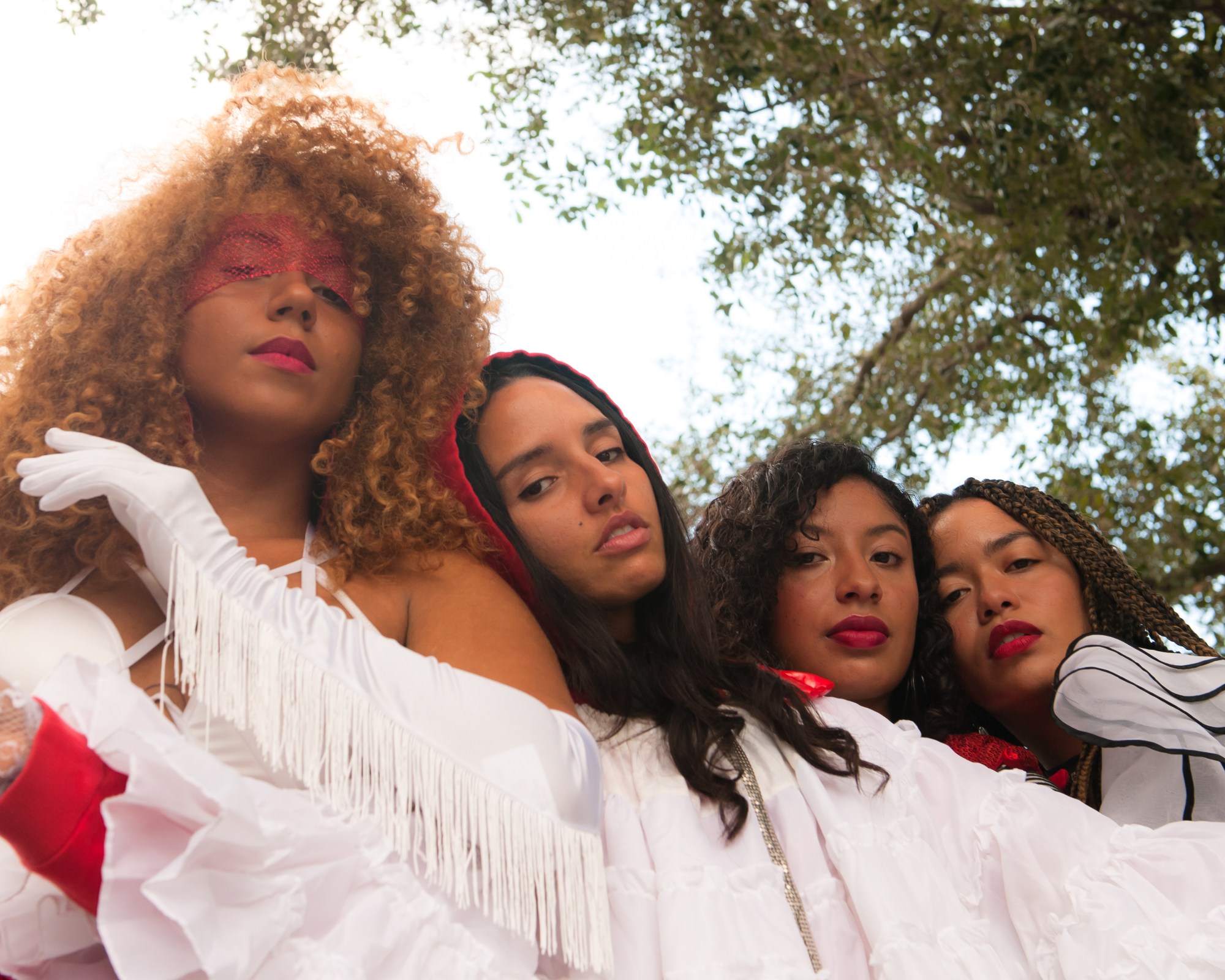Autumn is starfruit season in Miami, and the waxy, tubular pentagons are growing in my neighbors’ yards, weltering from trees like wind-chimes. Carambolas taste grape-y; they’re yellow and green, tart and sweet. Ashley Varela, a landscape architecture student who loves the stuff, is offering me a few of them. They were dropped off earlier by a woman visiting the Femme Fairy Garden — a community garden that’s slowly growing into bright, fecund fertility, newly planted herbs and edibles already attracting butterflies.
Femme Fairy Garden is part of (F)empower, a creative collective that uses, says its founder Helen Peña, “art, events, programming, and the digital space to create a black and brown feminist awakening in Miami.” The garden, which has been the work of many hands, is in her front yard, and Varela is its tender overseer. After I visit the garden, I call Peña, who’s currently organizing Fempower 2040, (F)empower’s Miami Art Week event and a dream of a not-distant future. The installation imagines a post-apocalyptic Miami, following the onslaught of sea-level rise and rising temperatures, and features two days of panels, screenings, and performances (Miami’s pink sunsets make a good backdrop for the End of Days). Accompanying the press release, there’s an invitation: Meet us at the pulsating womb of Earth.
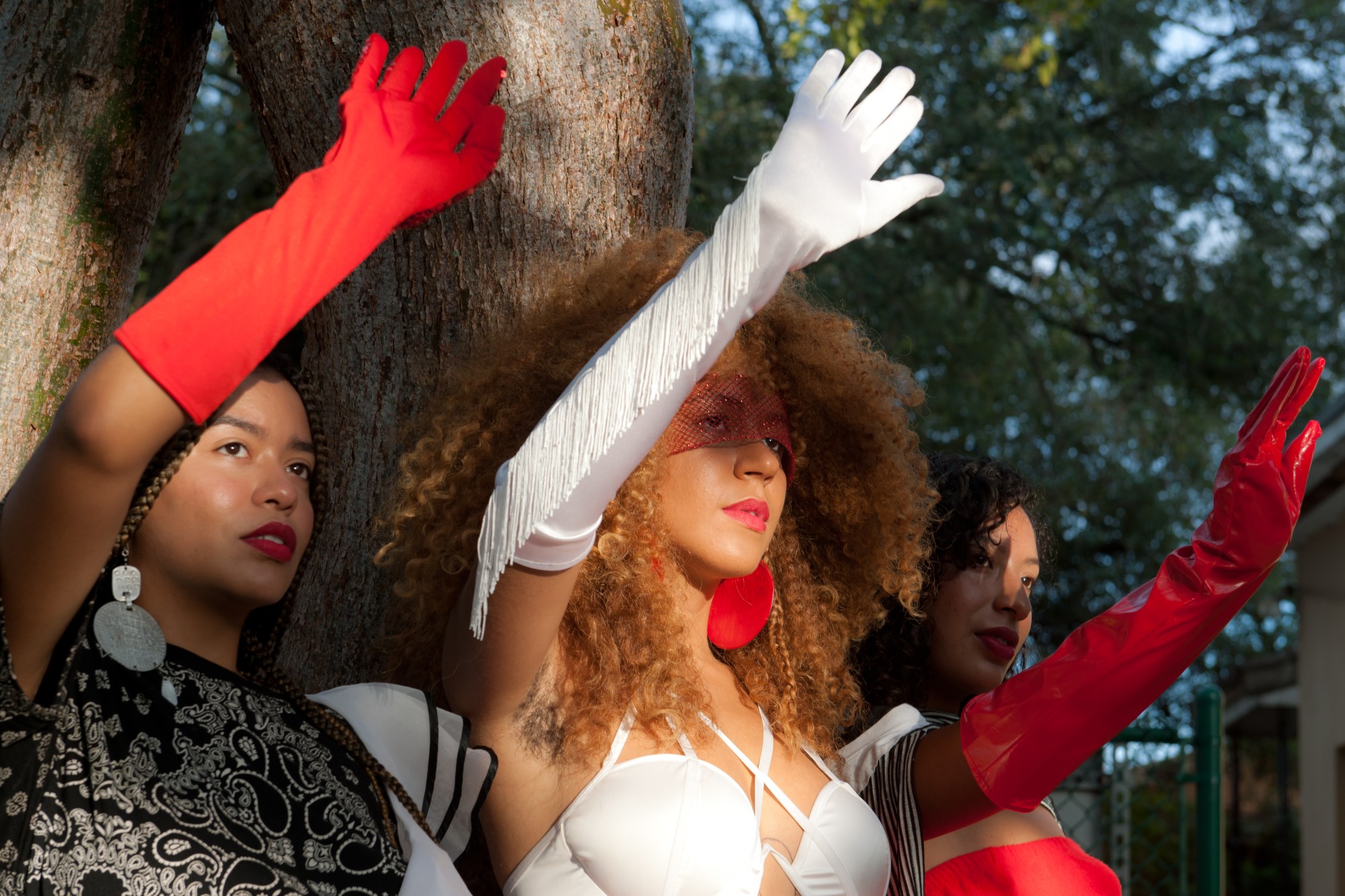
There are currently 35 people in (F)empower, more if you count the participants in their programming: a month-long sex education workshop, collective letter-writing to inmates in support of the Incarcerated Workers Organizing Committee, and Girls Can Spin 2, a DJ workshop led by Pam Jones and Christina Hernandez. Loka, an early (F)empower member and kinetic, exhilarative DJ whose mixes feel galvanizing, tells me the collective is “multifaceted — some of our programming is critical and intellectual, but we’re actively trying to put in work. A lot of us are first-generation children of immigrants. There’s an idea in Miami that because we didn’t come here from elsewhere, it’s easy to lay back apathetically. (F)empower wants to turn that on its head: because our parents struggled, we need to make sure no one else goes through that.”
(F)empower was once a photoshoot, and then a zine, back in May 2017, which these days feels like a terribly long time ago. For the photoshoot, Peña “toyed with the idea of a black girl gang,” she says, “honoring the women of the Black Panthers. When it was announced that countless black women and girls were missing across the country, I created a zine — it was a response to female black death, thinking about who the media feels is important or unimportant, who’s seen or unseen.”
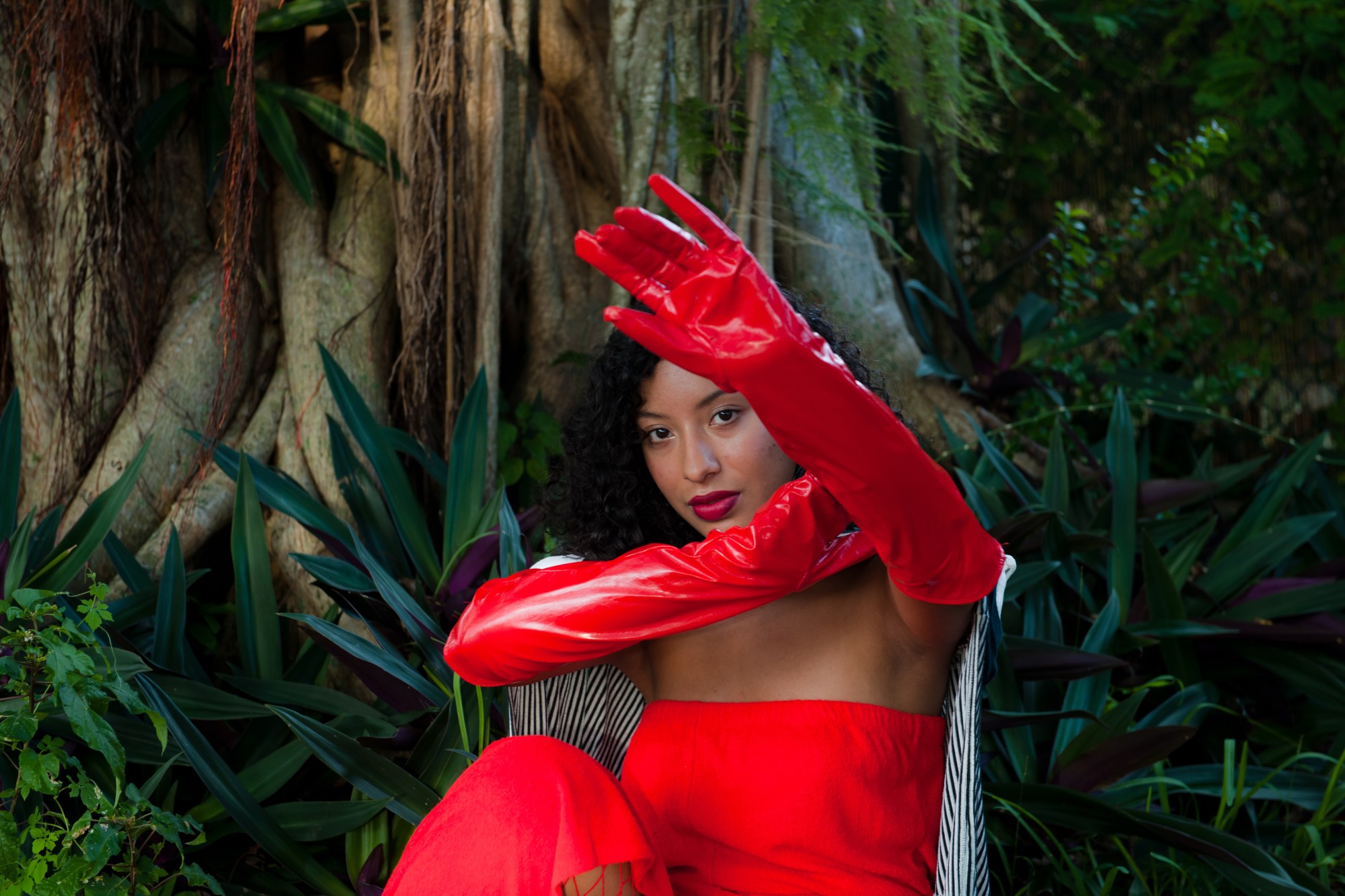
(F)empower was a response to a lot of things, Peña went on. “To realizing how this country was born on the backs of others, in violence. To the lack of unity in the art community — the sense of competition. To feeling suffocated by Latinx machismo and heteronormativity, by whiteness being the ideal, by capitalism infiltrating our interactions.” To retaliate, she went fiercely soft-hearted. “There was this idea of coming together — the only way out is in, the only way through is together. My growth will lead to your growth; if I’m healed and thriving, that can lift you up, too. What if we didn’t compete? What if we further expanded what people define as a ‘woman’ by also using the word femme, understanding that trans women are women, too, and their needs to be addressed? It’s about creating spaces of belonging.”
Representation, as an idea and not a movement, is freshly profitable, which means the urgency of those spaces will keep growing. “For so long, the white cis man was the norm, even for psychological experience or scientific studies,” Peña explains. “We’ve all fought to change that. Our ancestors brought us here. We demanded representation and now it’s taking over the dominant narrative — our voices are loud and proud. But they’ll find ways to make money off it. This country has always seen black and brown bodies as currency. I still challenge every artist to demand more.”
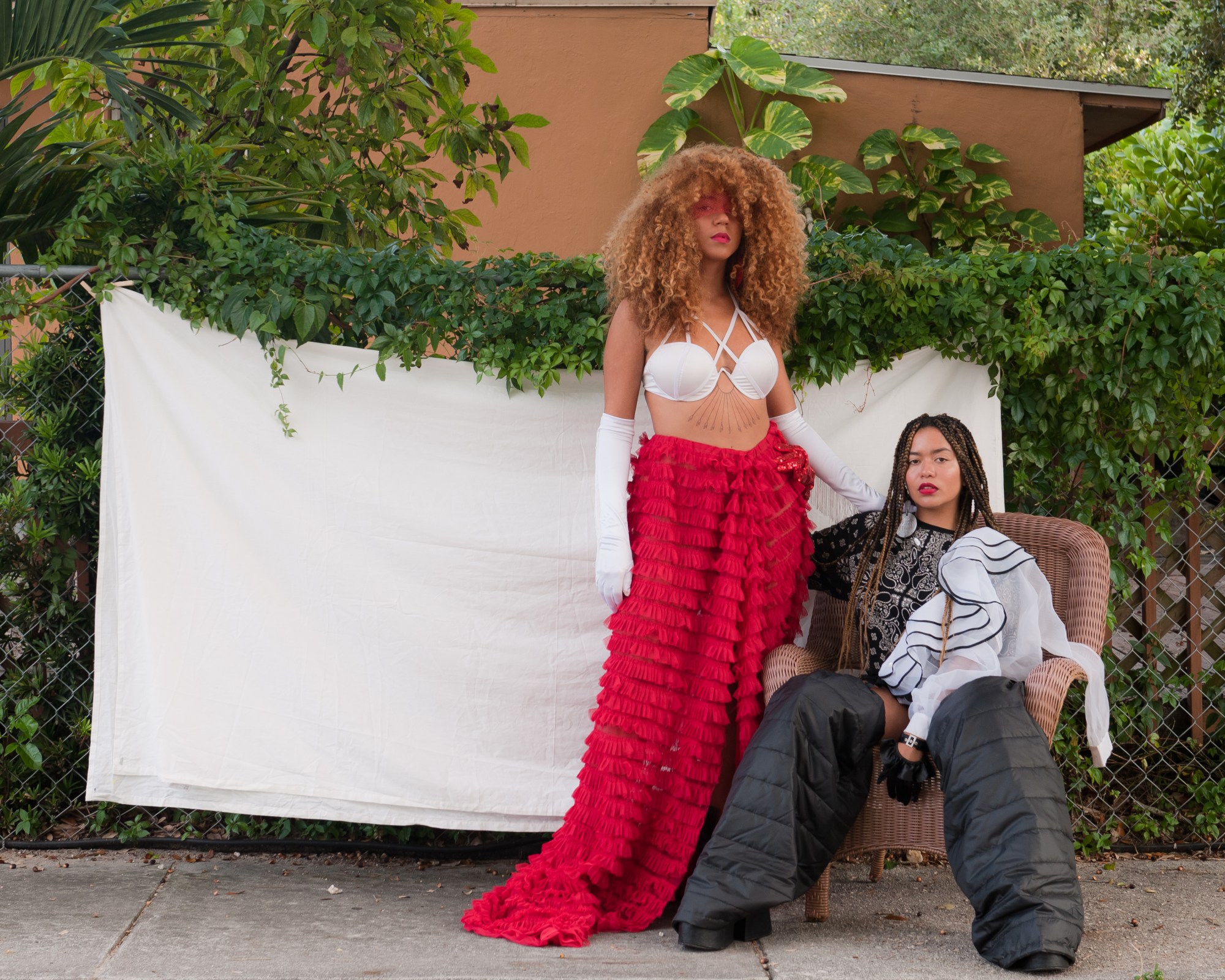
Peña reached out to folks on Instagram, and to her friends. Niki Franco, a community organizer and poet, has been there since the beginning. She’s the founder of (F)empower’s Liberation Book Club, in which texts — often critical theory — are shared as a means, she explains, of decolonizing the institutions in which they’re typically disseminated. “I don’t want a university to be the only space to access radical, sharp politics and history,” she says. “We can do this together.” The book club used to take place in Franco’s living room, “but it’s no longer an option. We have anywhere from 30 to 70 people. Most of us read the history and think, ‘Wow, this is worse than I could’ve possibly imagined,’ but also, ‘we are powerful.’ Truth is liberating in some ways, a huge burden in another.”
At the heart of (F)empower’s programs is, says Peña, “a collective mentality, and a lot of skill-sharing. For Niki, it’s the book club; for Ashley, it’s gardening.” The Femme Fairy Garden, adds Varela, is “a safe space for us. I realize that we’re fighting for our futures every day. There are different ways to be involved in activism, and this is mine: giving back to the community, so it can be self-sustainable. People start interacting with nature; ancestral memories return. They’ll say, ‘I didn’t realize I already knew this was medicinal, or that this was edible.’”

(F)empower has grown to enfold these ideas into their work, too: working with the earth, conceiving of it as La Madre. The equation of “Mother Earth” with femininity has historically reinforced the oppression of them both. “We’re trying to reconnect with the land and with each other, with the divine feminine, because all of it has been under attack,” says Peña. Franco works with Power U, an organization that empowers youths and fights against criminalization in public school systems. Given her experience with adolescents, she and (F)empower led a healing circle for survivors of sexual trauma. “There’s a need for healing across our communities,” says Franco. “There were 25-year-old women sharing very similar stories and pains to 13-year-old girls.” At the Femme Fairy Garden, Varela says, “we’ve had impromptu circles, ourselves. We cry. We dance. We sing.”
Miami is permanently in flux: a simultaneous growth and erosion. (F)empower tends to the former like a divine gardener. “It’s important to have a home team,” Loka tells me. She’s the one I speak to last, , and I hear seagulls in the background of our phone call, and I think: finally. The women of (F)empower rarely have downtime. “Miami used to be all about partying — now, finding people who are civically engaged is more common.” She’s right. The experience of living here mirrors the stereotypes only until it doesn’t; it is also a place where you can watch the sea rise in real-time, eat sweet pastries near a mangrove, never speak English, if you don’t feel like it. “I can play at the museum, at The Standard, and four or five (F)empower girls will pop up,” Loka adds. “And even if we’re trying to have fun, for these femmes, there’s more to it. It’s not vapid. Friendships like these are needed. Especially now.”
(F)empower Presents 2040: Travel to the Edge of A Dying World on December 6 and December 7, during Miami Art Week, at 5789 NW 7th Ave, Miami. RSVP here .
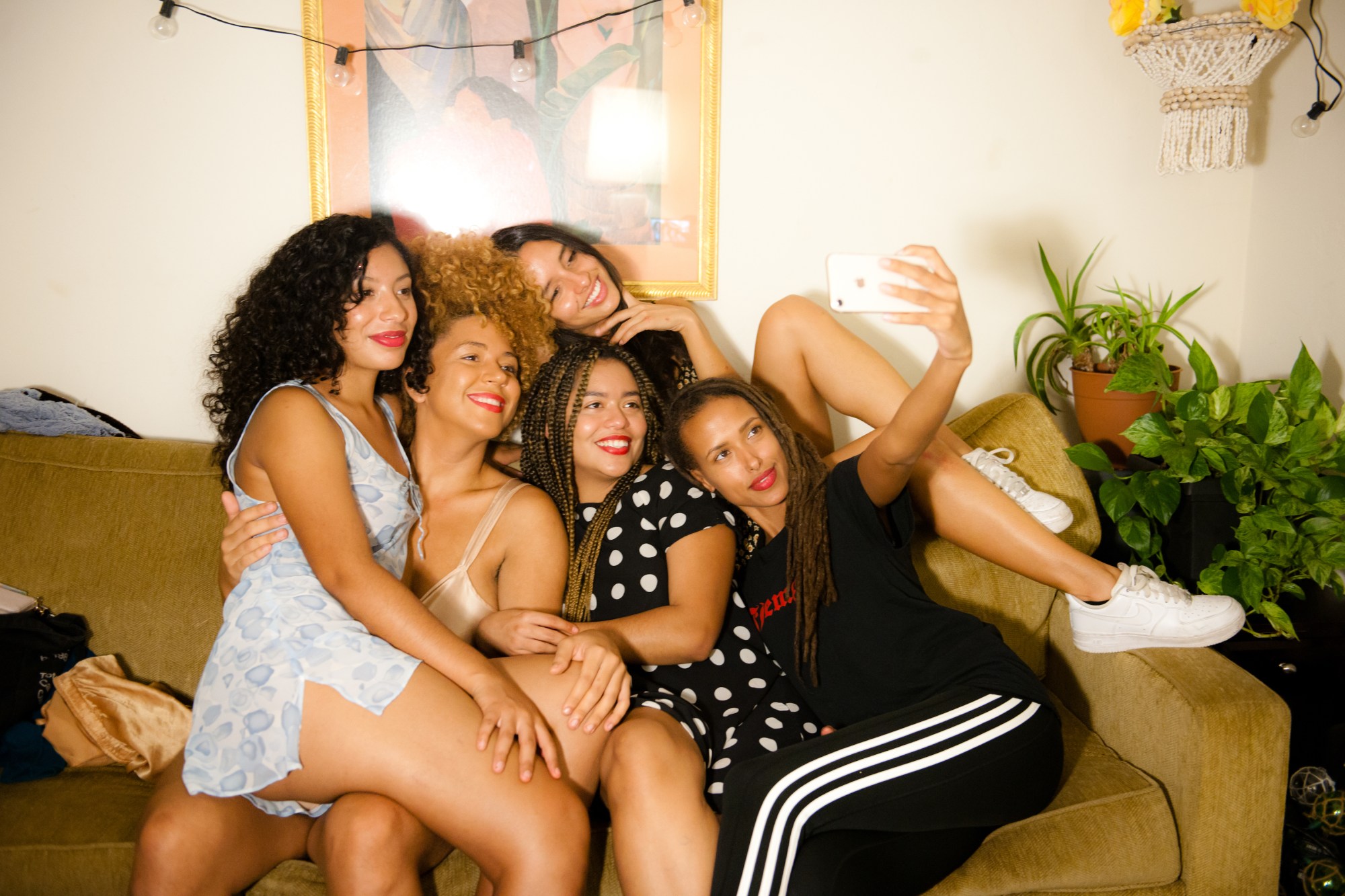
Credits
Photographer Nicole Combeau
Stylist Mumbi O’Brien
